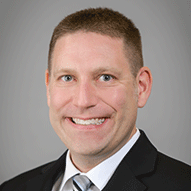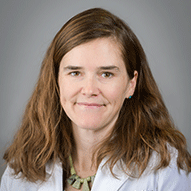Use of alcohol, illicit drugs, and abuse of prescription medication is a serious problem among teens. We work with teenagers to understand the pressures of adolescence and how to manage those pressures without using drugs.
Often, we identify patients who may be experimenting or using drugs. We can provide confidential care and referrals to help them end their use.
What is Adolescent Substance Abuse?
Substance abuse is the overindulgence of alcohol, illegal drugs, over-the-counter drugs etc. These can be inhaled, injected, smoked, swallowed etc., providing a temporary psychological change in the body.
Talk to your child – from a young age – about the dangers of drugs and alcohol. Know your child’s friends and whereabouts. Set a good example with your own behaviors, and pay attention to significant changes in your child’s mood, appearance, behavior, or habits.
If the problem is mild, or has just begun, talk to your child to reinforce the danger of these behavior, let them know it’s unacceptable, and set consequences. If the problem is severe or ongoing, consult your child’s doctor for referrals to counselors and other professionals who can help.
How can Adolescent Substance Abuse be prevented?
Prevention is our most important weapon against adolescent substance abuse.
Talk to your kids about substance abuse. We can provide:
- Questions to ask about your child’s views and experiences regarding alcohol and drugs
- Facts you can share with your teen about the long- and short-term effects of substance abuse
- Strategies to share with your child for resisting peer pressure
Preventing substance abuse:
- Knowing your child’s activities and whereabouts
- Establishing clear rules and consequences
- Getting to know your child’s friends and their parents
- Keeping all prescription drugs out of easily accessible places
- Setting a good example by not overindulging in alcohol or using drugs yourself
- Offering support and encouragement when your child is dealing with academic or social issues, times of transition, etc.
Considerations
Early substance abuse increases an adolescent’s chance of developing addictions and other serious problems.
Risk factors:
- Inability to handle stress (academic, athletic, etc.)
- Mental health issues (self-medication)
- Normal adolescent risk-taking tendencies paired with their developing judgment and decision-making skills
- Peer pressure/bullying
- Times of transition or trauma – including parents’ divorce; moving and changing schools; loss of a friend or loved one
Consequences:
- Concentration, memory, and academic problems
- Impaired driving and an increased risk of accidents
- Long-term addiction
- Unsafe sexual behavior
Serious health problems:
Some drugs carry a serious risk for overdose and death, while other substances can cause health problems over time, like:
What are the signs and symptoms of Adolescent Substance Abuse?
- Sudden or significant changes in mood, friendships, eating or sleeping habits, physical appearance, coordination, and/or school performance
- Loss of interest in favorite activities
- Hostility or extreme irritability
- Secrecy about actions or possessions
- Stealing or an unexplained need for extra money
- Medicine containers or drug paraphernalia in your child’s room or possessions
- Social isolation
- Slurred speech, bloodshot eyes, and/or unexplained hyperactivity or lethargy
- Tendency toward other high-risk or aggressive behaviors
How is Adolescent Substance Abuse treated?
Effective substance abuse treatment includes education and counseling to help your teen deal with the reasons behind his or her use of drugs or alcohol.
Depending on the severity of your child’s problem, he or she might need inpatient or outpatient treatment.
- Outpatient substance abuse treatment involves attending classes or counseling sessions.
- Inpatient treatment uses a similar approach, but also often includes medical supervision to help a teen withdraw from the addictive substance.





